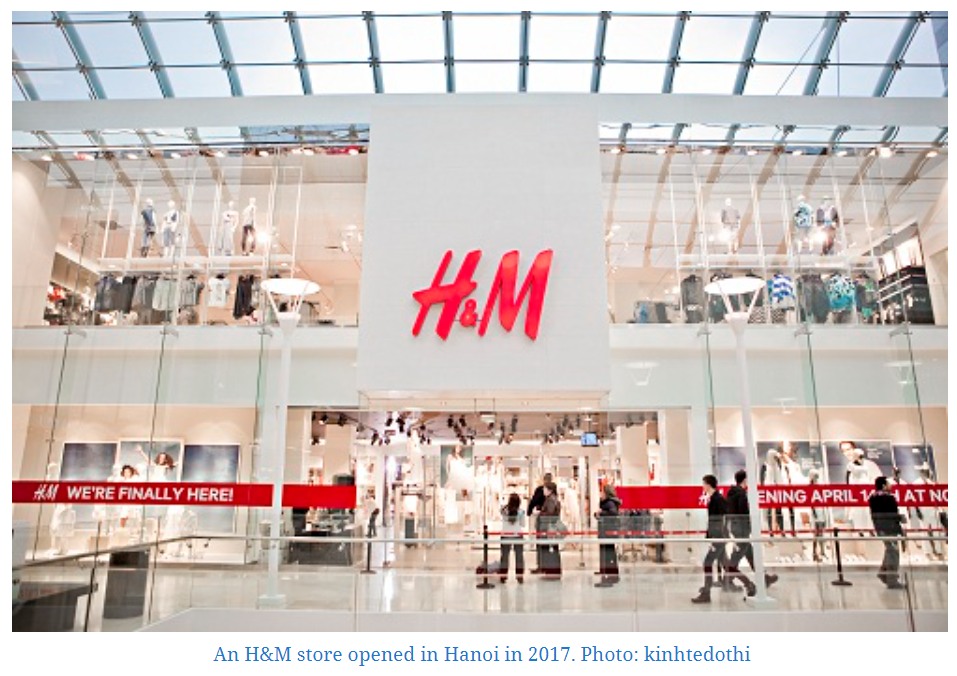Vietnam: Fado.vn stops selling H&M products
Fado is the first e-commerce platform in Vietnam to stop selling H&M products because the brand does not respect the country’s sovereignty
E-commerce trading floor Fado.vn has stopped trading products from Swedish fashion retailer H&M (Hennes & Mauritz AB) after this brand published an illegal map of China-claimed nine-dash line on its website several days ago.
Fado has become the first e-commerce platform in Vietnam to stop selling the H&M products.
CEO of Fado Vietnam Joint Stock Company Dat Pham said that the company stops trading all H&M products because its team is Vietnamese. “We do not cooperate with a brand that does not respect the sovereignty of Vietnam.”
The move came into effect from 0:00 on April 7.
Fado.vn is a cross-border e-commerce platform, focusing on selling fashion and jewelry products, in addition to technology products and many other products. It started operation in 2014.
According to iPrice’s e-commerce map, Fado.vn is the 7th largest e-commerce platform in Vietnam in the fourth quarter of 2020, behind Tiki, Lazada, Shopee, Sendo, Bach Hoa Xanh and Meta.
H&M issued the illegal map after it was alerted by the Cyberspace Administration of China.
A wave calling for boycott of the H&M products is increasingly spreading on social networks such as Facebook and Twitter. Social network users around the world, especially Vietnam, have strongly opposed H&M’s action, criticizing the Swedish retailer for defying international law to ‘kneel’ in front of Beijing.
H&M entered Vietnam in 2017. At present, the company operates 12 stores in Vietnam, compared to 520 in China.
 |
| Fado made an announcement to stop selling H&M products on its website. Photo: Ngan Ha |
H&M is a prime example of foreign companies being punished for going against China’s politic policy. Its products have been withdrawn from Chinese e-commerce sites run by Alibaba and JD.com, due to their stance against accusations of using forced labor to produce cotton in the Xinjiang region, a cotton production region of China.
Beijing has for many times repeated that multinational corporations must follow its rules if they want to operate in the country. Many companies are still willing to ‘pay the price’ because of the country’s huge economy with attractive things including autos, clothing, movies and luxury brands.
Isaac Stone Fish, founder and CEO of Strategy Risks, a research firm focused on corporate risk in China, told CNN that businesses already are forced to pick sides, and they try really hard not to have to do that publicly.
He pointed to the National Basketball Association (NBA) as the “most notorious example of that spilling out into the public.”
In 2019, the National Basketball Association (NBA) got into a ‘fight’ with Beijing after General Manager of the Houston Rockets Daryl Morey tweeted in support of pro-democracy protesters in Hong Kong. The China Central Television immediately stopped airing the NBA’s games, while all official Chinese partners of the tournament were required to suspend relations with NBA.
“They’re trying to balance between their most important market and their most important growth market, and sometimes they make ethical sacrifices,” Fish said to CNN.
The nine-dash line is unilaterally-claimed by Beijing, encroaching 90 per cent of the South China Sea (called East Sea by Vietnam).
Source: http://hanoitimes.vn/fadovn-stops-selling-hm-products-316952.html


 English
English




